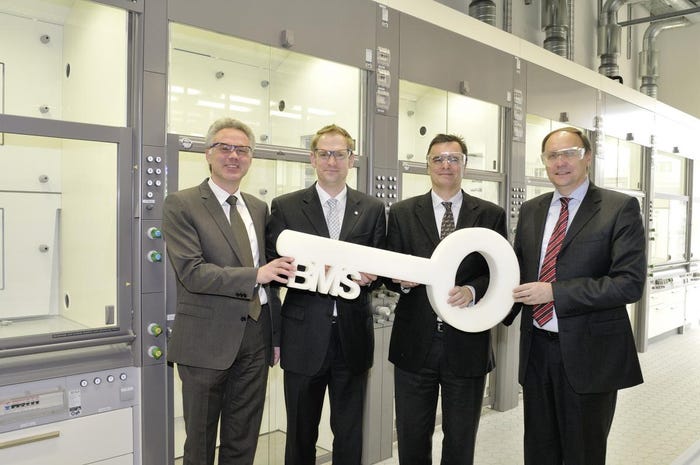BASF and Bayer announce investments in PUR businesses
Two of the world's largest players in the polyurethane market announced investments in their respective businesses to start the week, with Bayer releasing news of a euro 5 million investment in a new technical center for the development of isocyanate production processes on Jan. 16, and BASF broadcasting plans to build a single-train 300,000 tonnes/yr production plant for TDI (toluene diisocyanate) in Germany a day later.
January 17, 2012
Two of the world's largest players in the polyurethane market announced investments in their respective businesses to start the week, with Bayer releasing news of a euro 5 million investment in a new technical center for the development of isocyanate production processes on Jan. 16, and BASF broadcasting plans to build a single-train 300,000 tonnes/yr production plant for TDI (toluene diisocyanate) in Germany a day later.
BASF's plans entail a total investment of about €1 billion and the creation of around 200 additional jobs in Ludwigshafen. The company will construct a new hydrogen chloride recycling plant and expand existing nitric acid, chlorine, and synthesis gas plants. BASF said it also plans to expand the aromatics complex at the site to boost the supply of toluene.
Production is to start at the end of 2014, and will result in the shuttering of its 80,000 tonnes/yr TDI production plant in Schwarzheide, Germany. Following the investment, BASF's PUR precursor business will revolve around two sites: Ludwigshafen for the production of TDI and Antwerp for the production of MDI (diphenylmethane diisocyanate) and propylene oxide.
Bayer seeks new routes to MDI, TDI
Bayer MaterialScience, meanwhile, has commissioned a new hydrogenation technical center at its Chempark Dormagen site, saying the euro 5 million investment will allow it to pool its research activities for the efficient production of PUR precursors MDI and TDI.
Bayer MaterialScience Chempark Dormagen |
Bayer MaterialScience has consolidated all of its isocyanate research into its Chempark Dormagen facility. |
The move concentrates all global research activities related to the production of aromatic isocyanates into one location, promoting efficiency gains in the research and optimization of the production processes, according to Joachim Wolff, head of the polyurethanes business and member of the Executive Committee of Bayer MaterialScience.
The company has developed an adiabatic variant for the hydrogenation process, eliminating the need for heat transfer. In Bayer's process, the reaction takes place in a large steel vessel, in which the catalyst is placed on a grating, and the heat of reaction is dissipated together with the gas flow, eliminating the need for the circulating oil loop. In addition to being more efficient, the new process reportedly also results in a product of significantly higher purity.
Bayer MaterialScience is already applying the new hydrogenation technology at its world-scale facility in Shanghai, which has an annual production capacity of 350,000 tonnes.
About the Author(s)
You May Also Like



